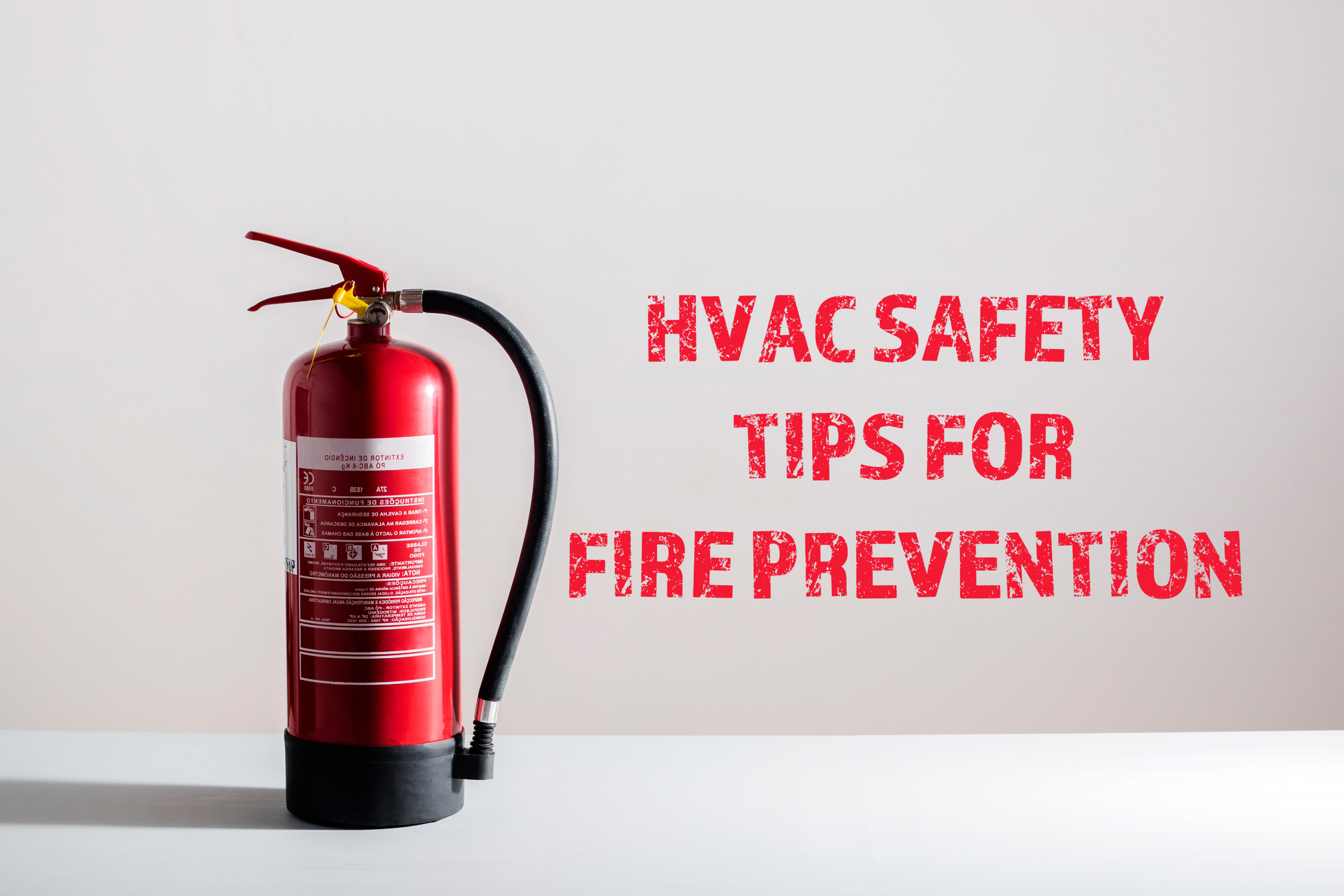Did you know that October is National Fire Prevention Month? It started as a week-long commemoration of The Great Chicago Fire of 1871, but now it spans the entire month. Each year, approximately 358,500 house fires occur. Surprisingly, experts say that most of these fires can be prevented by practicing simple preventative measures and proper maintenance. Delaware Heating & Air cares about your safety, and we want to help raise awareness about fire safety with all things HVAC-related.
Typical HVAC Fire Hazards:
First, it’s crucial to grasp that your HVAC system is NOT inherently unsafe. However, like all things in life, improper practices and negligence can have serious consequences. Therefore, it’s important to be mindful of common fire hazards associated with HVAC systems.
- Electrical Issues: Electrical issues are a common cause of HVAC-related fires. When buying a home, the complete history of an HVAC unit may not be available. Over time, these units age, wear down, or become outdated, leading to electrical problems with old wiring and circuits. It’s crucial to know the condition of your HVAC units. So, if you can’t remember the last time your units were serviced, please give us a call! Regular maintenance is essential for preventing dangerous situations.
- Clutter Around Units: Depending on where your HVAC units are located, there may be clutter in the area. No judgment, though! It happens! Some units are installed in garages or basements, which are often used for storage. This can result in boxes, paint cans, chemicals, or other items being stacked in front of or around the HVAC unit. Therefore, it’s important to keep the area clear and allow for airflow around each unit, even if the unit is stored in designated closets or elsewhere in your home.
- Poor Installation: Improper installation is another common reason for HVAC-related fires. Installing an HVAC unit involves many details, and poorly installed units can go unnoticed for years without regular servicing. To avoid this, it is important to work with a licensed HVAC company that uses certified technicians for installations. Additionally, as mentioned earlier, make sure to schedule regular maintenance checks for your HVAC system.
Fire Prevention Tips from Your Delaware Heating & Air Professionals:
- Create an escape plan and ensure that the whole family, including young children, is aware of it. Select a familiar and safe location outside the house where everyone can gather in the event of a fire.
- For added safety, it’s best to use a Carbon Monoxide & Explosive Gas Detector in your home. These alarms can detect carbon monoxide and natural gases like methane and propane.
- It’s important to have smoke detectors on every level of your home, including the basement. It’s a good idea to have smoke detectors placed outside every sleeping area, like in the hallway. If possible, consider an interconnected smoke alarm system. This way, if one alarm goes off in a specific area, all alarms will sound, giving you more time to respond.
- Remember to test your Smoke and Carbon Monoxide Detectors monthly and stay vigilant in replacing the batteries. A good practice is to switch out the batteries every year for added safety.
- Smoke alarms have a limited lifespan. Check the manufacture date on the back of the smoke alarm and replace it after ten years from that date.
- Ensure you have a fire extinguisher on each level of your home, ideally in a readily accessible common area.
- According to experts, it is recommended to close all bedroom doors at night to slow down the spread of fire. This simple strategy has proven to be life-saving.
At Delaware Heating & Air, your family’s safety is our top priority. To ensure your HVAC system is running smoothly and up to current standards, we recommend staying on top of annual maintenance. Give us a call to learn more about our Whole Home Protection Plan and keep your home and HVAC system in excellent condition. We’ve got you covered!
Call Delaware Heating & Air today at (740) 227-8302, or schedule a heating or cooling repair appointment online now by clicking here!







